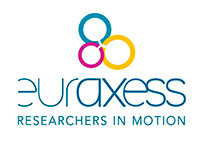Bolsa de PD em Bioinformática
Post-Doctoral Fellowship in Bioinformatics
Nº: 6041
Área de conhecimento: Imunologia
Field of knowledge: Immunology
Nº do processo FAPESP: 2021/00408-6
FAPESP process: 2021/00408-6
Título do projeto: Estratégia multiômica não direcionada para identificação de novos alvos imunomoduladores em coortes prospectivas e retrospectivas de pacientes com câncer – Centro para Pesquisa em Imuno-oncologia (CRIO)
Project title: Unbiased multi-omics strategy for discovering of novel immunoregulatory targets using prospective/retrospective cancer patient cohorts – Center for Research in Immuno-oncology (CRIO)
Área de atuação: Bioinformática
Working area: Bioinformatics
Quantidade de vagas: 1
Number of places: 1
Pesquisador responsável: Kenneth John Gollob
Principal investigator: Kenneth John Gollob
Unidade/Instituição: Hospital Israelita Albert Einstein
Unit/Instituition: Hospital Israelita Albert Einstein
Data limite para inscrições: 04/06/2023
Deadline for submissions: 2023-06-04
Publicado em: 16/05/2023
Publishing date: 2023-05-16
Localização: Rua Rubens do Amaral, s/n –- Centro de Ensino e Pesquisa Albert Einstein, São Paulo
Locale: Rua Rubens do Amaral, s/n –- Centro de Ensino e Pesquisa Albert Einstein, São Paulo
E-mail para inscrições: crio.einstein@gmail.com
E-mail for proposal submission: crio.einstein@gmail.com
-
Resumo
Summary
O Laboratório de Imuno-oncologia no Centro de Ensino e Pesquisa Albert Einstein oferece uma vaga de pós-doutorado. O bolsista irá colaborar com a análise de dados multiômicos de diferentes coortes de pacientes com câncer. O objetivo é identificar moléculas, vias, células imunes e redes responsáveis pela indução de uma resposta antitumoral eficaz (respondedor ou controle de doença) versus uma resposta deficiente (não respondedor ou recidiva) após intervenção terapêutica em coortes prospectivas e retrospectivas.
Nosso grupo é ligado ao Centro de Pesquisa em Imuno-Oncologia (CRIO), um Centro de Pesquisa em Engenharia apoiado pela FAPESP em conjunto com a GSK, com sede no Instituto Israelita de Ensino e Pesquisa Albert Einstein e que ainda conta a FMRP-USP e o A.C.Camargo Cancer Center como instituições parceiras.
Requisitos: candidatos pró-ativos, capazes de trabalhar de forma independente e em equipe. Necessário experiência prévia em análises de dados de exoma e transcriptoma, além de domínio de linguagem R e/ou Python e conhecimento em análise integrada de dados multiômicos. Espera-se que o candidato também auxilie na criação de pipelines de análise de dados que possam ser replicados e auxiliem alunos de pós-graduação. Experiência em análise de dados de single-cell RNASeq será considerada um diferencial.
Enviar para o e-mail crio.einstein@gmail.com: Curriculum Vitae, carta de interesse e dois contatos de referência.
A vaga está aberta a brasileiros e estrangeiros. O selecionado receberá Bolsa de Pós-Doutorado da FAPESP no valor de R$ 9.047,40 mensais e Reserva Técnica equivalente a 10% do valor anual da bolsa para atender a despesas imprevistas e diretamente relacionadas à atividade de pesquisa.
The Immuno-oncology Laboratory at the Albert Einstein Education and Research Center in São Paulo, Brazil offers a post-doctoral position. The postdoc will collaborate with the analysis of multi-omic data from different cohorts of cancer patients. Our goal is to identify molecules, immune cells and networks responsible for inducing an effective antitumor response (responder or disease control) vs. a poor response (non-responder or relapse) after therapeutic intervention in prospective and retrospective cohorts.
Our group is linked to the Center for Research in Immuno-Oncology (CRIO), one of the Engineering Research Centers (ERCs) supported by the São Paulo Research Foundation (FAPESP). CRIO is jointly funded by GSK and hosted by Albert Einstein Education and Research Center; also, the University of São Paulo's Ribeirão Preto Medical School (FMRP-USP) and A.C.Camargo Cancer Center feature as CRIO's partner institutions.
We are looking for candidates who are proactive and able to work independently and in a collaborative team. Previous experience in analyzing exome and transcriptome data is required, as well as expertise in the R and/or Python languages and integrated analysis of multi-omic data. The candidate is also expected to assist in creating replicable data analysis pipelines and assist graduate students in analyzing their data. Experience in single-cell RNASeq data analysis is desired.
Please send to crio.einstein@gmail.com: Curriculum Vitae, letter expressing the reasons for interest in the position and two names to be consulted for recommendation.
This opportunity is open to candidates of any nationality. The selected candidate will receive a FAPESP Post-Doctoral fellowship in the amount of R$ 9,047.40 monthly and a research contingency fund, equivalent to 10% of the annual value of the fellowship which should be spent on items directly related to the research activity.
-
Enviar
Oportunidade - Oportunidades Abertas Open Opportunities
-
Fellowships Opportunities
